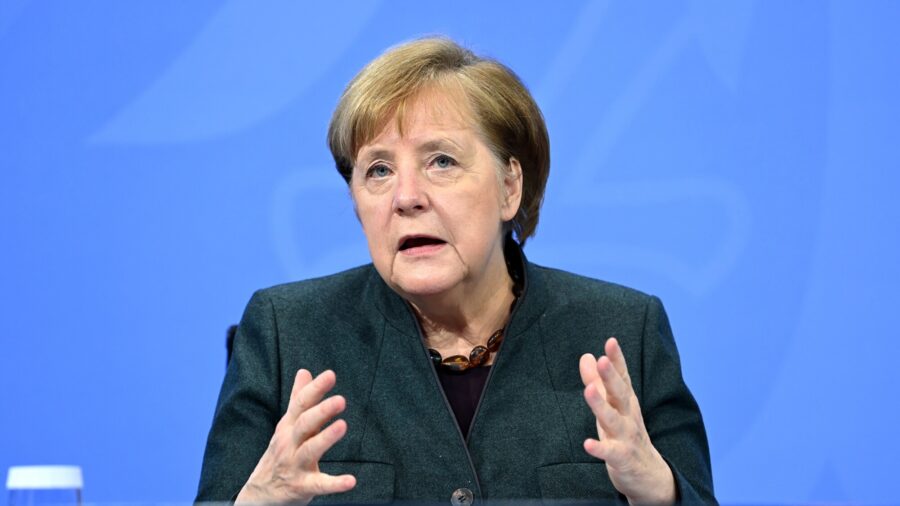BERLIN—German Chancellor Angela Merkel warned that Germany may need to consider border crossing curbs if other European countries do not act to halt the spread of the coronavirus, particularly its new, more transmissible variants.
“We can do anything we like, but we will not succeed if others are not working in parallel,” Merkel told journalists on Tuesday, two days ahead of a videoconference of European leaders. “We need to make sure that everyone around us is doing the same. Otherwise we have to look at measures such as entry restrictions.”
Her comments came after she and leaders of Germany’s 16 states agreed to extend for another two weeks a lockdown for most shops and schools until Feb. 14.
New infections have been falling in recent days and pressure on intensive care units has eased slightly, but virologists, pointing to the situation in the UK, with Europe’s highest COVID-19 death toll, warn the mutations could undo all progress.
Germany shares borders with nine countries, and there are growing concerns about infection rates in some of them, including the Czech Republic, where commuter traffic is heavy.
Most schools will remain closed, despite opposition, given evidence that some new variants are more transmissible among children, Merkel said.
“If we had a situation like London, then we wouldn’t be talking about schools anymore but about ambulances and overflowing hospitals,” she said.
Medical masks, and not simple cotton ones, will be made mandatory on public transportation and in stores, and companies must let employees work from home until March 15 where possible.
Aid for hard-hit companies is to be improved, and retailers’ writedowns on seasonal goods—which could include winter coats or ski equipment—will be taken into account.
A waiver on insolvency filings for firms hit by the coronavirus crisis will be extended until the end of April.
The provision, which had been due to expire at the end of the month, has helped contain bankruptcies in Europe’s largest economy.
The number of confirmed coronavirus cases rose 11,369 to 2.05 million, data from the Robert Koch Institute for infectious diseases showed on Tuesday. The death toll was up 989 to 47,622.
Germany aims to bring the number of infections per 100,000 inhabitants over seven days down to no more than 50. That number currently stands at 132.
By Andreas Rinke and Christian Kraemer

